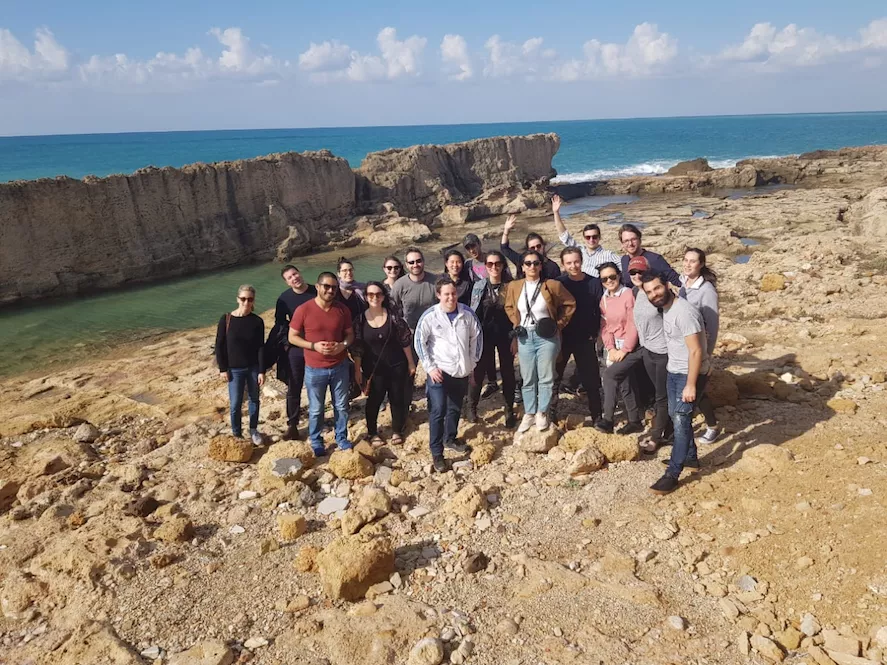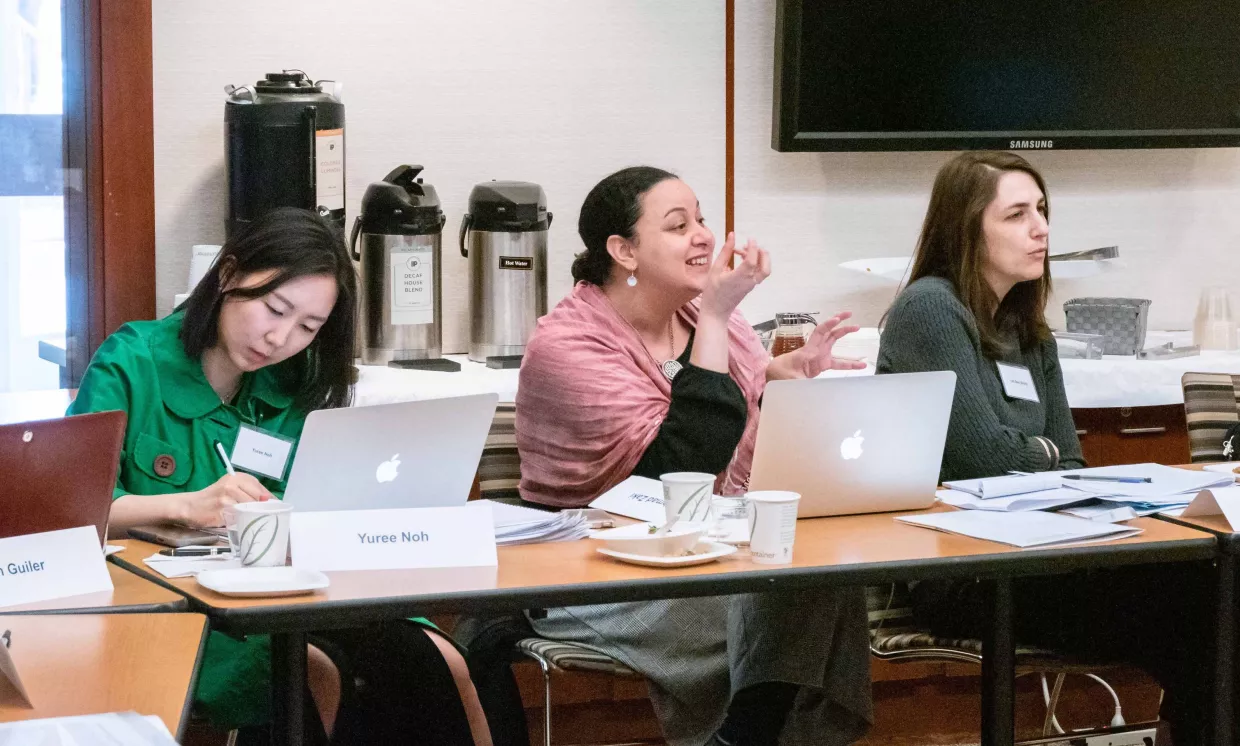Middle East Initiative Develops Vital Links

The Middle East today is experiencing a profound transition—confronting political, demographic, and economic challenges and opportunities that will continue to have a tremendous impact on the region and the world.
Led by Harvard Kennedy School Professor Tarek Masoud, Sultan of Oman Professor of International Relations, the Belfer Center's Middle East Initiative (MEI) addresses these challenges using a multi-pronged approach. By convening the world’s top academic and policy experts, fostering a community of scholars, and supporting research, MEI promotes a better understanding of the challenges and opportunities facing the region. By providing a range of opportunities for students and professionals, MEI develops and prepares the next generation of leaders to bring positive and lasting change to the area.
The Initiative recruits and rewards scholarships for talented students from the Middle East and facilitates Middle East-based experiential learning, policy research, and internship opportunities for those interested in the region. MEI engages a broader audience through its public events and other creative efforts, such as its participation in last spring's world premiere of We Live in Cairo, a musical about the Egyptian revolution. Through these and other programs, MEI strives to promote the exchange of ideas, knowledge, and perspectives, and to realize its mission of advancing public policy in the Middle East.
Fellows and students, who are central to MEI’s efforts to develop scholars and leaders, regularly credit the Initiative for having a major impact on their educational experiences and career paths. Following are a few examples:
Jamal Haidar, MEI Associate and former Research Fellow who is an Assistant Professor of Economics at American University in Cairo, works with many in the MEI community on international and development economics issues in the region. “MEI is making me a better researcher than I would have been otherwise,” Haidar says. “It is facilitating my field work on diverse topics in the Middle East and is also helping me work more easily with the brightest minds.”

MEI Research Fellow Yuree Noh is the lead researcher on MEI’s Kuwait Public Policy Opinions Project, which is polling Kuwaiti citizens on a range of issues. Noh, who is profiled on page 12 newsletter, joined former MEI Research Fellows Lihi Ben Shitrit, Hind Ahmed Zaki, and Lillian Frost to convene a Middle East feminisms workshop - the first of its kind - at Harvard Kennedy School in the spring of 2019 and is currently coordinating the next iteration of the workshop. “I am extremely fortunate to be part of the MEI community,” Noh says. “As a junior scholar, I have benefited immensely from the MEI’s large, diverse network of colleagues and mentors, who not only provide intellectual stimulus but also new collaborations and close friendships.”
Two Harvard Kennedy School students, Rahaf Safi and Sarah Mousa, spent this past winter term conducting research in the Middle East with travel funding they received from MEI. With this support, Safi said, “I was able to travel to Jordan to interview, in-person, actors working in Syria on the humanitarian response.” Mousa, who also worked with Safi on a student-driven study group that brought together HKS students and experts to discuss social policy topics related to the Middle East and North Africa, added that “the most valuable resource was the faculty, fellows, and staff who are always generous in lending their time and expertise. MEI allows me to tailor my HKS experience to ensure that I am building the skillsets and knowledge areas that I came here to develop.”
Learn more about the Middle East Initiative here.
"Building Bridges with the Middle East." Belfer Center Newsletter, Belfer Center for Science and International Affairs, Harvard Kennedy School. (Spring 2020).

